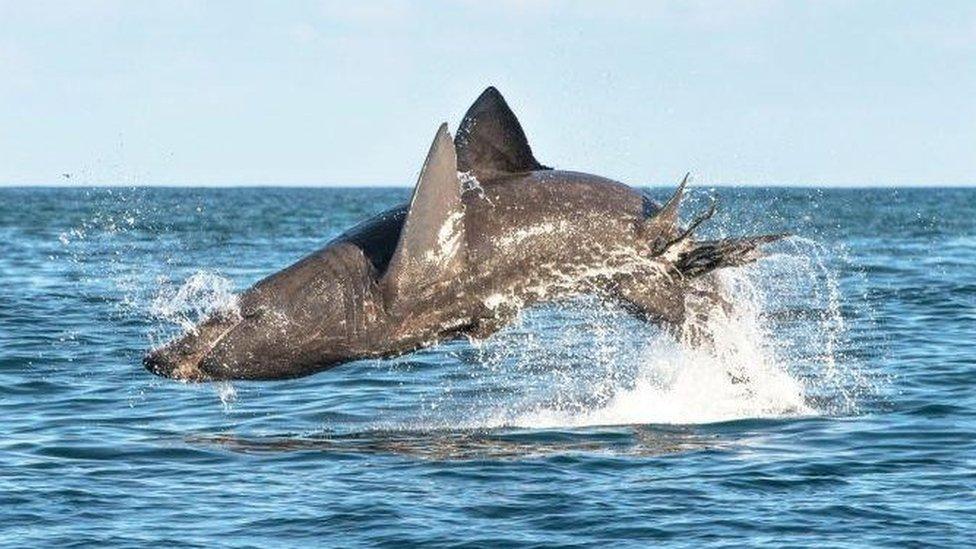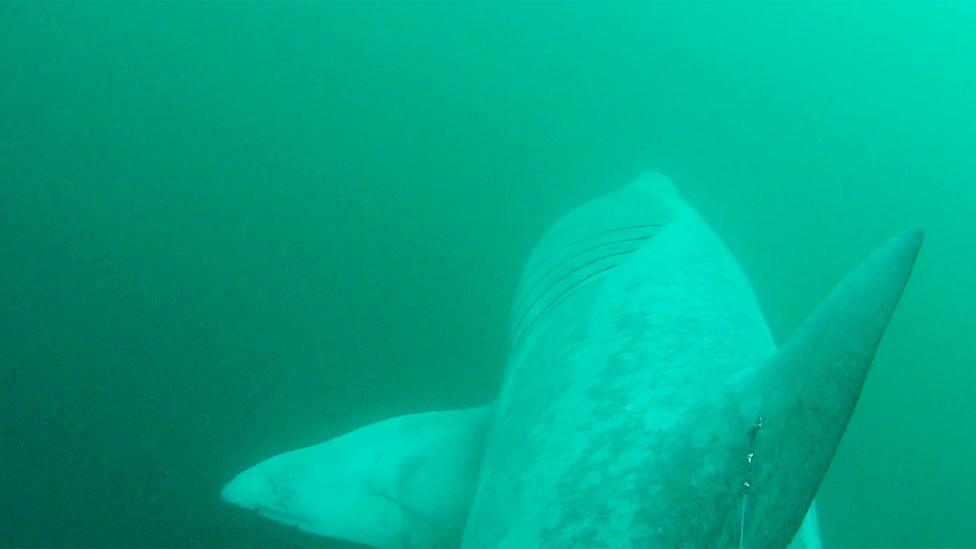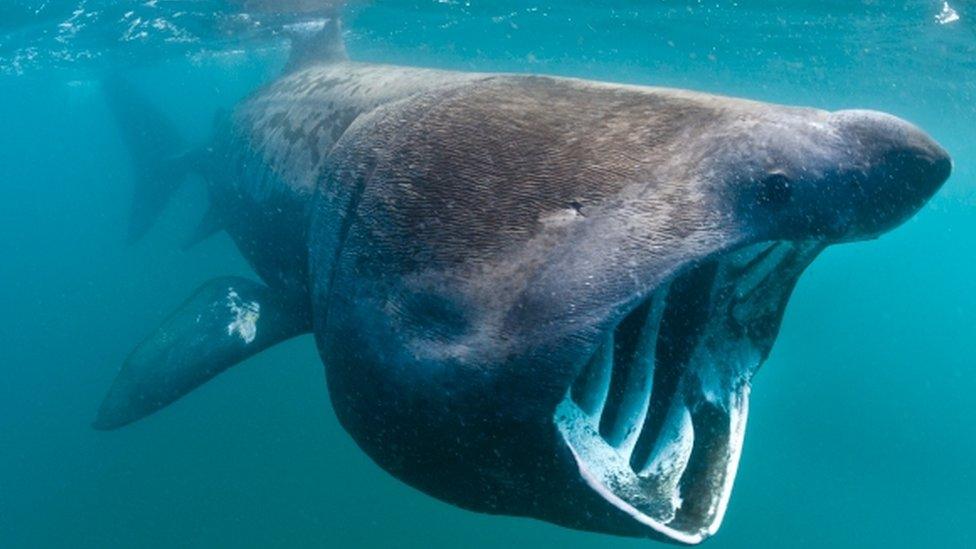Great flight shark: Gentle giants prove to be fast and agile
- Published

A breaching basking shark
A team of scientists have discovered that basking sharks, the world's second largest fish, can jump as fast and as high out of water as great whites.
The researchers said plankton-eating basking sharks had a reputation for being "slow and languid", while their cousin was "famously powerful".
In their new study, the scientists recorded a basking shark that achieved a top speed of 5.1 metres per second.
Other research has suggested the sharks likely breach while feeding.
Every summer basking sharks gather in large numbers around small islands between Skye and Mull, off Scotland's west coast.
They later migrate south to waters around Madeira and the Canary Islands off west Africa.
'Cows as fast as wolves'
The new research was led by Queen's University Belfast and London's University of Roehampton and published in the Journal Biology Letters, external.
During its study, the team recorded a basking shark accelerate from a depth of 28m (92ft) to the surface with 10 beats of its tail over a period of about nine seconds.
The animal broke through the surface at almost 90 degrees and was clear the water for one second, peaking at a height of 1.2m (4ft) above the surface.
To achieve this breach, the basking shark exhibited a six fold increase in tail beat frequency and attained a top speed of about 5.1 m/s.
This is more than twice as fast as the average competitor in the Olympic men's 50m freestyle swim, the team said.

A breaching great white shark
Dr Jonathan Houghton, senior lecturer in marine biology from the School of Biological Sciences at Queen's, said: "This finding does not mean that basking sharks are secretly fierce predators tearing around at high speed. They are still gentle giants munching away happily on zooplankton.
"It simply shows there is far more to these sharks than the huge swimming sieves we are so familiar with. It's a bit like discovering cows are as fast as wolves - when you're not looking."

Basking sharks, this one fitted with a camera, arrive off Scotland's west coast every summer
Dr Nick Payne, assistant professor in zoology at Trinity College Dublin and co-author on the research said: "The impressive turn of speed that we found basking sharks exhibit shows how much we are yet to learn about marine animals - even the largest, most conspicuous species have surprises in store, if we're willing to look."
Previous research published in the Journal of the Marine Biological Association of the United Kingdom, external, examined the theory that basking sharks breach to attract the opposite sex.
The scientists said they found no clear evidence this was the case, and suggested the sharks breached to give themselves an advantage over other sharks while feeding.
- Published15 August 2018
